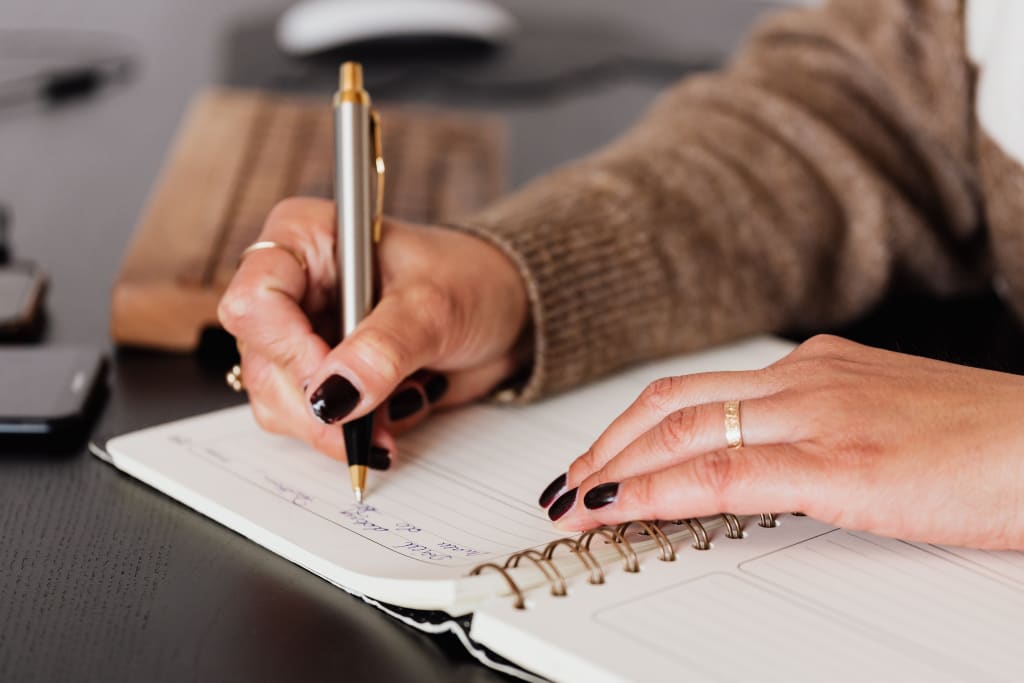
Just for a moment, I would like for you to think back to grade school and try to remember some of the hobbies you had. There’s a strong chance that at some point during that time, the concept of owning a journal or diary came to mind. You may have even had one but stopped writing after a while. Why do you think that is? I have a few theories but the one that seems most promising is that growing up, you’ve spent so much time doing essays, papers, homework, and other countless literature assignments that your subconscious is completely turned off by the idea of writing anything. Daniel Greene makes the exact same point in this video in regards to why most people stop reading when they grow older, even if they loved to read when they were kids.
Getting that message out of the way, there’s endless reasons why you should start a journal and find ways to incorporate it with your life. I have been journaling for about 17 years now and, despite having some lulls in consistency, I keep coming back. Is it because old habits die hard? Or maybe there’s something more to it. Let’s jump into it!
What You Need & “Journal vs Diary”
As simple as this may be, all that anyone really needs to start is a notebook and a pen or pencil! You can get into specifics as to notebook types, gel versus ink point, whether you want to go electronic (almost like a certain blog I know), but the absolute bare minimum that you need is some paper and writing utensils. Now something else that I believe doesn’t get mentioned enough is everything other than your journal. Your surrounding ambiance can make a huge difference into writing comfortably non-stop and having a major writer’s block. This is something that is a bit more personable to you but here are some things to look out for:
Noise Factor: Do you prefer to write quietly? Do you need white noise? How about music? Would you go to a café or mall to hear the background noise of people walking and talking?
Physical Surroundings: Is your home suitable to write in? Would you prefer to go outside to a park? How about a café like I mentioned before? Is the lighting too bright or dim? Is your environment too hot or cold?
Avoiding Distractions: Are you silencing your cell phone while you write? Do you have kids that need to be factored in? Is something else already preoccupying your mind (more on this later) that you need to focus on?
Another thing to touch on is the distinction between a journal and a diary. Although their descriptions can arguably be interchangeable, there are some differences worth mentioning:
Journals:
- A notebook containing personal thoughts, expressions, or ideas in a free-flowing manner.
- More for creative writing and casual brainstorming.
- Often ranges to having personal entries, lists, even drawings or photography.
Diaries:
- A notebook containing a series of entries keeping track of something.
- More for use as a ledger with dated entries.
- Examples include tracking personal “day-to-day” life, fitness progress, garden growth, etc.
A lot of people assume that diaries are purely meant for the “Dear Diary,” experience where you solely talk about your personal life, but they are in fact also used in multiple capacities to keep a record of different hobbies and interests. The main difference to point out is although diaries are more consistent in topics (all about one’s life or interest), journals are much more open-ended: they can go from poetry to shopping lists to how your day has gone in the matter of a few pages. This reason alone is why I would recommend someone start a journal first, because it is easier to prevent burnout by always having that open-ended option.
Making Your First Entries & Finding Topics
There are an infinite number of things to write about, but it’s up to you to decide what you want to discuss. Often, writing about your day is a nice way to get the mind flowing. Depending on how comfortable you are, you can be as detailed and descriptive as you’d like! Personally, I don’t leave any stone unturned; since I know that I have control over it and would only let select people read it with me present, I try to cover everything that occurs.
Aside from how your day has been, use this medium as a tool to make your life easier. Use it as a shopping list, a way to practice doodles, perhaps you want to give poetry a shot. Keep your journal near you as much as possible so when something occurs that you want to jot down, you have it right there! I’m not saying you need to write absolutely everything down, but you would be surprised how much easier things like problem-solving and brainstorming get when you have a means of organizing your thoughts.
A psychologist of mine that I used to speak with once told me about a business CEO that had an upcoming decision to make but couldn’t figure out what to do for the life of them. Trying to think it over, looking at it from a business/ personal/ emotional point of view, they were stuck. After mentioning it to him, the psychologist suggested that maybe they should write it down, even to try and keep it simple with a pros and cons list. Almost instantly after they did so, they were able to come up with a stable solution that benefited everyone. Ask anyone who journals religiously: it’s not just a means of putting thoughts to paper, but a method of calming the mind, bringing pure thought to light, and finding a bit of peace from it.
Journaling Advice In Summary:
- Journal what comes to mind, never limit yourself!
- Be sure where and when you write fits you best. Make the time to write however you can.
- Keep your journal near you when possible.
- Ensure you take breaks to prevent burnout. Write when you’re comfortable doing so, never force it.
- Explore yourself and see how creative you can get with it.
I firmly believe everyone should have a journal, not just to help keep track of certain things, but as a way of settling things on your mind, journaling can be used as a form of meditation. A lot of people get hung up on avoiding the distractions of the outside world to want to commit to something like this but believe me when I say the benefits far outweigh the drawbacks. If you’re thinking of starting a journal, you don’t need to be Alexander Hamilton, just a person with a thought on the mind and some pen and paper to write with.
~~~
Writer’s Endnote:
Thank you for taking the time to read this!
If you enjoyed it, consider checking out my other works on Gamer Empire, Wattpad, Medium, Vocal, as well as freelance services on Fiverr and Upwork!
Thank You For Your Time,
-Kadence <3
About the Creator
Kadence
"That the universe was made just to be seen by my eyes." - Saturn by Sleeping at Last
With nearly a decade's worth of creative and technical writing, I cover topics that are personal to me. Otherwise, what would be the point?






Comments
There are no comments for this story
Be the first to respond and start the conversation.